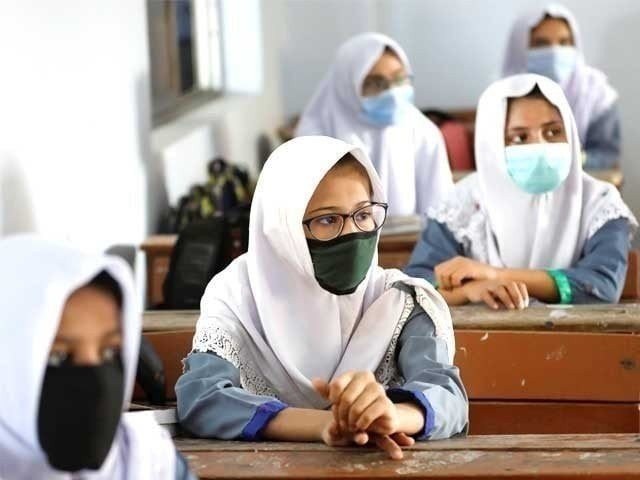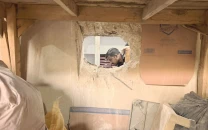‘SBEP aims to eradicate gender gap in schools’
73 out of 106 intended schools built providing access to 80k students in 10 districts, says USAID regional director

The Sindh Basic Education Program (SBEP), a project initiated with the collaboration of USAID and the provincial government, is proving to be effective in eradicating gender inequality in the field of education, said United States Agency for International Development (USAID) Sindh-Balochistan Regional Director James Peres on Sunday.
Addressing a virtual seminar on the basic education programme, Peres said that the joint-venture between the provincial government and USAID has been running successfully for nearly a decade. Working in the field of education is important for both the countries and the governments of both the countries are working together for this cause, he said. “We are succeeding in enrolling more women and students from remote areas in schools, which is in the interest of people of both the countries.”
In his address, Peres noted that the USAID intends to build 106 educational institutions under the Sindh Basic Education Program and 73 of these educational institutions have been completed. Construction work of the remaining 33 is underway, he noticed.
As many as 80,000 students in 10 districts of Sindh have the opportunity to be educated in the schools established under the programme, according to Peres, who mentioned that the initiative was launched in the aftermath of 2011 floods.
He further added that the schools being established are now being upgraded to the secondary level and are to provide better access to education and training to boys and girls without discrimination. The USAID regional director mentioned that the schools established under this programme are handed over to the education management organisation immediately after the construction is complete.
Meanwhile, Project Management Specialist for Education Leela Ram noted that Article 25-A of the Constitution of Pakistan gives the right of free education to all boys and girls and this initiative is a big step towards achieving this.
Female students are compelled to leave schools in the absence of facilities like washrooms, drinking water, boundary walls and other basic requirements, said Ram, adding that these facilities have been made a priority under the basic education programme.
Ram further added that providing a conducive and encouraging learning environment is an important component of the programme and students are provided with facilities for sports, entertainment and technical education as well. According to Ram, students are being provided with the opportunities to study without discrimination on the basis of colour, caste or creed.
Published in The Express Tribune, February 8th, 2021.



















COMMENTS
Comments are moderated and generally will be posted if they are on-topic and not abusive.
For more information, please see our Comments FAQ